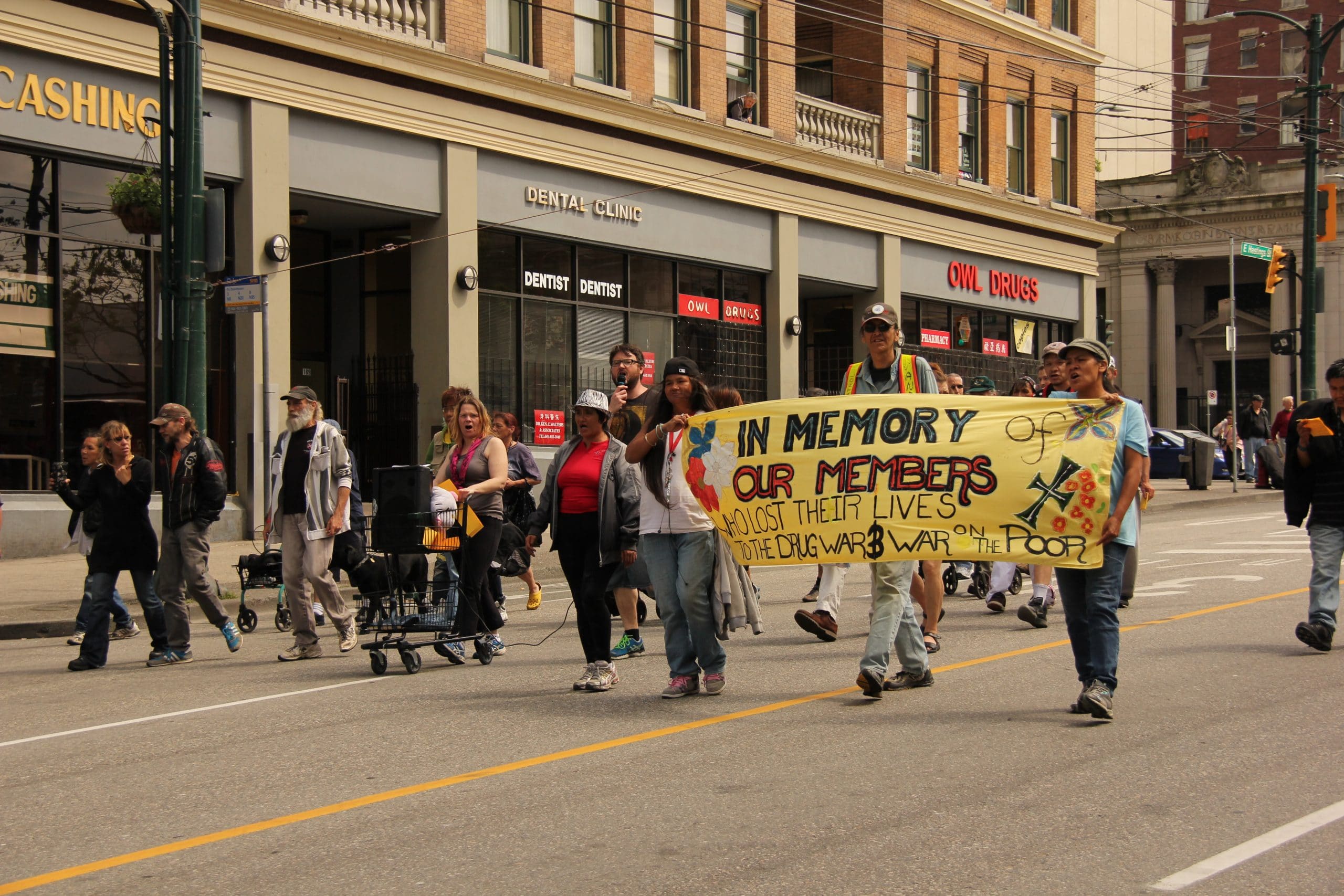The current “Vancouver Model” sets a dangerous precedent—a system ‘by’ police is ‘for’ police, not the people it was intended to help. We need #DecrimDoneRight where policies are co-developed by people who use drugs.
Intimate partner violence, substance use, and COVID-19
During COVID-19 and its aftermath it is important to consider the impacts of the pandemic and social and physical isolation on women’s health. This sheet explores adaptations to practice for service organizations and frontline workers, to respond to concerning trends in intimate partner violence (IPV) and substance use in the COVID-19 context.
Develop a model for decriminalization that responds to needs of people who use drugs
An exemption must apply to all substances, quantities (for personal use) instances of transferring below specified thresholds, and must not include unnecessary restrictions or conditions.
Cycling to stop the harm. A journey across Canada in support of progressive drug policy
My journey across three provinces to help end stigma around substance use
Statement on suspension of injectable opioid agonist treatment (iOAT) in Alberta
Edmonton, AB—Canadian Association of People Who Use Drugs, Canadian Drug Policy Coalition, Friends of Medicare, Moms Stop the Harm, and HIV Legal Network are deeply concerned about…
Reducing transmission of respiratory illness through improved indoor air quality
Respiratory illnesses like COVID-19 are spread in a few ways, including through the air. When people are together indoors, infections can spread more easily.
Decriminalizing drugs in Vancouver
This is a critical moment in Canadian drug policy. We must ensure that decriminalization centres the needs of people who use drugs
Looking ahead to 2021 and the fight for drug policy reform
In 2021, the Canadian Drug Policy Coalition will train its focus on decriminalization and the legal regulation of drugs to help end the harms of the toxic drug market.
Legal and civil society groups commend City of Vancouver’s leadership on drug decriminalization
Decriminalization would be a critical move towards addressing record overdose deaths and rampant stigma against people who use drugs, reducing barriers to accessing services, and avoiding ineffective and unnecessary use of public funds.








